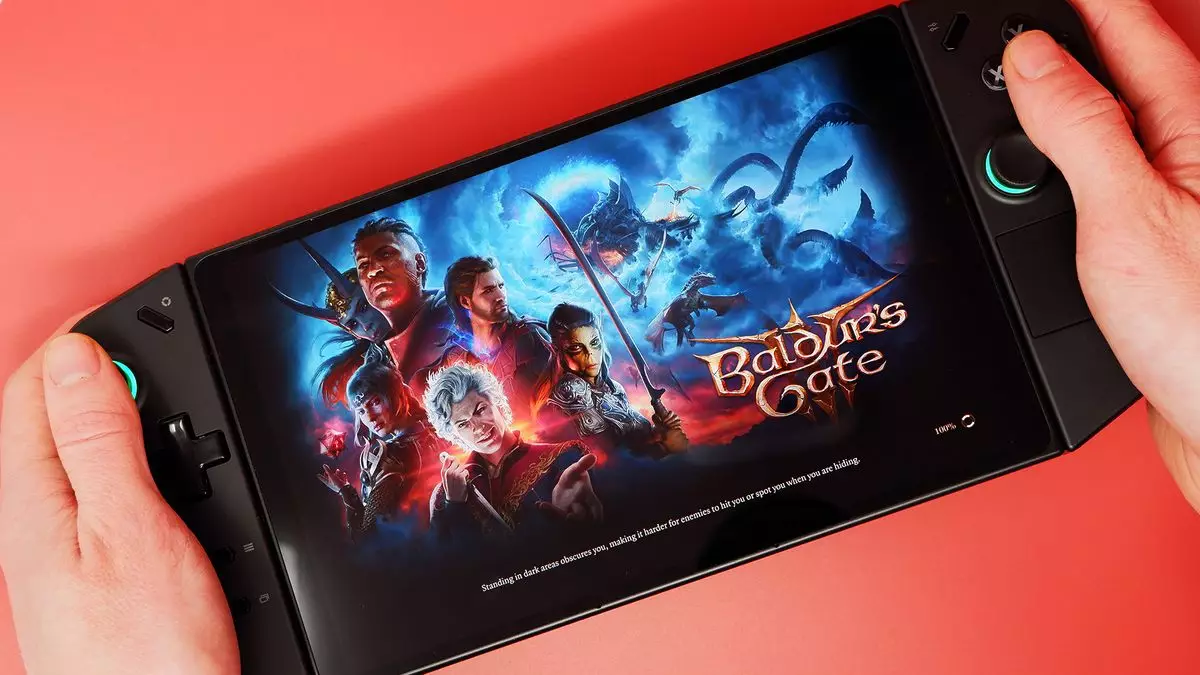In the rapidly evolving landscape of handheld gaming, innovation is not just welcomed; it’s essential. While Windows has long dominated the PC gaming arena, alternatives like Valve’s SteamOS, built on Linux, are beginning to gain traction. As we approach the upcoming CES 2025 event, Lenovo is stirring anticipation around its next-generation handheld gaming device, possibly featuring SteamOS support. This transition may herald a significant shift in how gamers engage with portable devices.
Scheduled for January 7, 2025, Lenovo’s presentation at CES promises to unveil the “future of handheld gaming.” This annual event has become synonymous with groundbreaking tech showcases, akin to what E3 offers for video games. What makes Lenovo’s announcement particularly intriguing is the involvement of Valve as a special guest. While this collaboration may appear inconsequential at first glance, when coupled with recent leaks regarding Lenovo’s Legion series, it could indicate robust advancements in portable gaming.
Recently leaked images showcasing a white model of the Lenovo Legion Go S, alongside a rumored black variant equipped with a Steam button, have emerged. Although these leaks originated from a source known for reliability, the uncertainty surrounding their accuracy encourages a cautious outlook. However, if credible, these developments suggest a major leap forward in SteamOS compatibility, potentially allowing the Legion handhelds to break free from their Windows confines.
The integration of SteamOS into handheld gaming devices could dramatically alter the user experience. Historically, Windows has been the go-to operating system for PC gaming, yet this platform often presents challenges on more compact devices. Users have experienced cumbersome navigation, making it less than ideal for quick gaming sessions. SteamOS, on the other hand, is specifically designed with gaming in mind, streamlining the operating process and making it significantly easier for gamers to jump directly into their games.
For the enthusiastic gamer, a device that supports SteamOS offers considerable advantages—especially on a handheld. With its tailored interface, gamers can navigate through their libraries seamlessly, accessing a plethora of titles without the frustrations that Windows often imposes. Furthermore, compatibility with Steam sales, which can be overwhelming in their abundance, would become more manageable on a device streamlined for such purposes.
The first iteration of the Lenovo Legion Go received positive feedback for its impressive display and user-friendly design, which mimics the modular approach of the Nintendo Switch. The addition of SteamOS could enhance this experience further. Imagine a compact gaming device that not only feels good to hold but also runs smoothly, allowing for quick boot-ups and instantaneous access to your gaming library.
Moreover, considering Lenovo’s reputation for quality and innovation, a SteamOS-enabled Legion handheld could set new benchmarks in the industry. As more gaming enthusiasts gravitate towards portable systems, Lenovo’s entry into this space—with a dedicated gaming OS—could prove to be formidable amid the rising competition.
As we look forward to Lenovo’s potential announcements at CES, there is palpable excitement around how this evolution might shape the future of handheld gaming. If successful, we could see more companies exploring non-Windows options, leading to an ecosystem where gamers have greater choices for their portable devices.
Ultimately, the influence of SteamOS in handheld gaming could be significant, paving the way for a full-fledged gaming experience that caters to the growing demand for convenience and efficiency. By breaking away from Windows’ traditional limitations, Lenovo and Valve together could redefine what it means to game on the go.
As this narrative unfolds, the gaming community awaits with bated breath to witness the future of handheld gaming, encapsulated within Lenovo’s next release. Will this collaboration lead to a monumental shift in portable gaming? Only time will tell, but the buzz surrounding CES is certainly a sign of exciting developments on the horizon.

